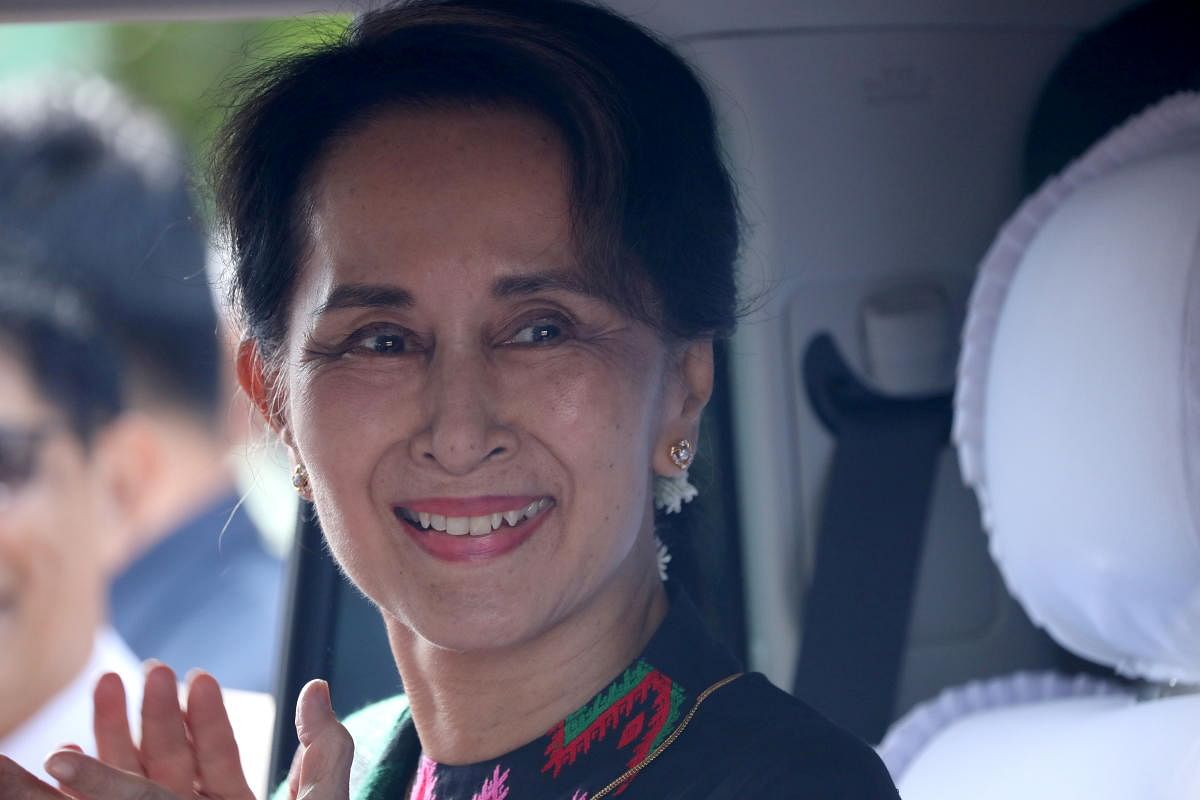
The political party led by Myanmar’s civilian leader, Aung San Suu Kyi, is poised to stay in power after winning what is only the second truly contested election the country has held in decades, though one in which many voters from ethnic minority groups were prevented from casting their ballots.
Suu Kyi’s party, the National League for Democracy, captured at least 397 parliamentary seats out of 476, according to official results released Wednesday. That is even better than its landslide victory in 2015, when the party began a power-sharing arrangement with Myanmar’s military, which had ruled the country for about 50 years. The national election commission still has the results of about a dozen more races to tally, but it deemed the polls free and fair.
“We have already secured the seats needed to form a government,” said Myo Nyunt, a spokesman for the National League for Democracy. “Our victory is because people trust us.”
Suu Kyi, 75, a Nobel Peace Prize laureate who spent 15 years under house arrest before becoming Myanmar’s de facto civilian leader five years ago, has seen her global reputation stained by her support of the very generals who once locked her up. Last year at the International Court of Justice in The Hague, she defended the military against accusations that it had committed genocide against the country’s Rohingya Muslim population.
But Suu Kyi’s popularity has endured in a country where she is beloved both as an embodiment of democratic resistance and as the daughter of the army general who helped birth the nation’s independence from Britain. Many among the nation’s ethnic Bamar majority see Western criticism of Suu Kyi as a betrayal. For many people at the polls Sunday, a vote for the National League for Democracy was the same as a vote for her.
Last month, the Union Election Commission, which is not independent of the governing party, canceled the vote in battle zones where insurgents from ethnic minority groups were fighting the military for autonomy. These areas were precisely where unhappiness with the National League for Democracy has been strongest, leading to speculation that the mass disenfranchisement was a tactic to ensure the party’s victory. (Rohingya Muslims were also not given the right to vote.)
On Tuesday, the military-linked Union Solidarity and Development Party rejected the emerging results, urging that a fresh election be held with the military acting as observers.